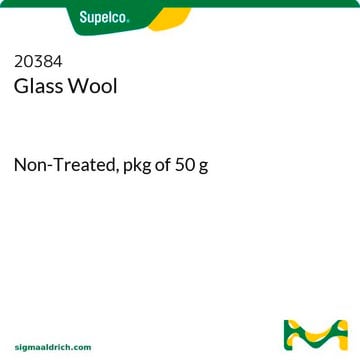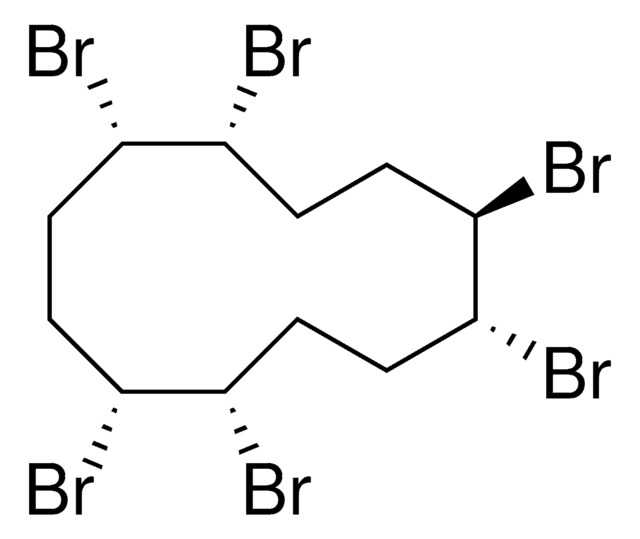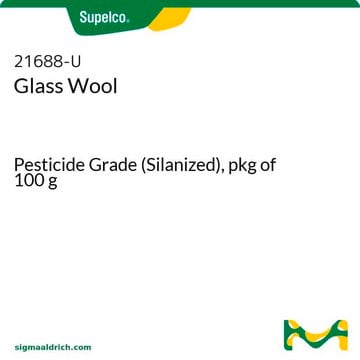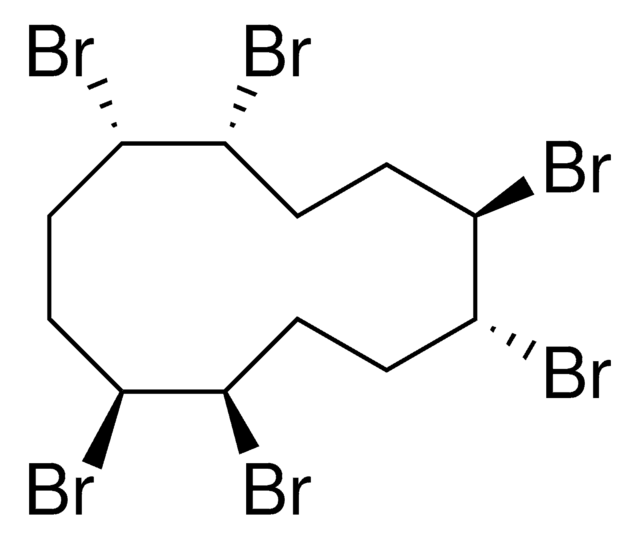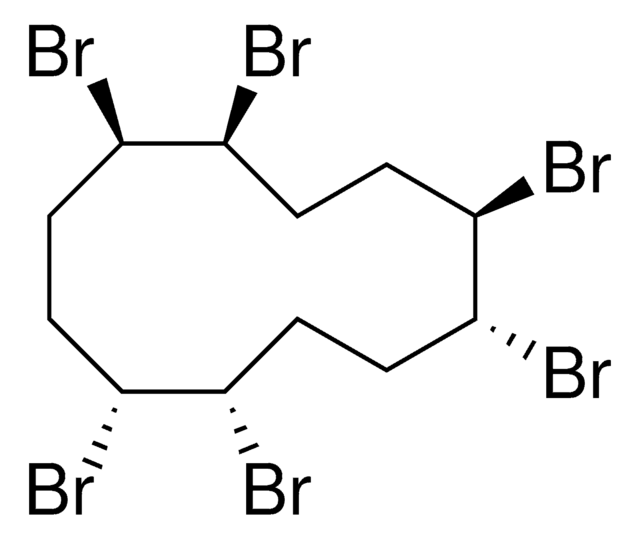Recommended Products
Agency
suitable for EPA 1621
suitable for EPA 1633
suitable for EPA OTM-45
packaging
pkg of 50 g
technique(s)
gas chromatography (GC): suitable
Looking for similar products? Visit Product Comparison Guide
General description
Glass wool is made up of short glass fibres and is non-flammable in nature. It is widely considered as a thermal insulation material in ships, automobiles, air conditioning ducts and water supply pipes. Furthermore, it is also used as noise absorbing material in concert halls, studios and movie theatres. Above all that it is non carcinogenic to humans.
Wool plugs are often used in GC inlet liners to improve sample vaporization, and/or to keep non-volatile material from entering the column. They can also be used in packed GC columns, solvent desorption tubes, thermal desorption tubes, and purge traps to retain adsorbent beds.
Application
Silanized glass wool gas chromatographic packed column maybe used in an experimental procedure for measuring and collecting volatiles from edible oils.
Other Notes
Silanized for general purpose use
Storage Class Code
11 - Combustible Solids
WGK
WGK 1
Flash Point(F)
Not applicable
Flash Point(C)
Not applicable
Personal Protective Equipment
dust mask type N95 (US), Eyeshields, Gloves
Choose from one of the most recent versions:
Certificates of Analysis (COA)
Lot/Batch Number
Sorry, we don't have COAs for this product available online at this time.
If you need assistance, please contact Customer Support.
Already Own This Product?
Find documentation for the products that you have recently purchased in the Document Library.
Advanced Ceramic Technologies & Products. The Ceramic Society of Japan.
Imanaka Y.
Science, 18, 339-344 (1984)
Volatiles and oil quality.
Jackson HW and Giacherio DJ.
Journal of the American Oil Chemists' Society, 54 (10), 458-460 (1977)
Shayla Salzman et al.
Science advances, 6(24), eaay6169-eaay6169 (2020-06-26)
Most cycads engage in brood-site pollination mutualisms, yet the mechanism by which the Cycadales entice pollination services from diverse insect mutualists remains unknown. Here, we characterize a push-pull pollination mechanism between a New World cycad and its weevil pollinators that
Keunhong Jeong et al.
Magnetic resonance in chemistry : MRC, 56(11), 1089-1093 (2018-06-02)
Parahydrogen is a potentially significant source of hyperpolarization. However, a heat exchanger at an ultralow temperature, which is normally sustained wastefully using liquid nitrogen, is essential for the generation of hyperpolarized parahydrogen. In order to cut down on the use
Our team of scientists has experience in all areas of research including Life Science, Material Science, Chemical Synthesis, Chromatography, Analytical and many others.
Contact Technical Service

